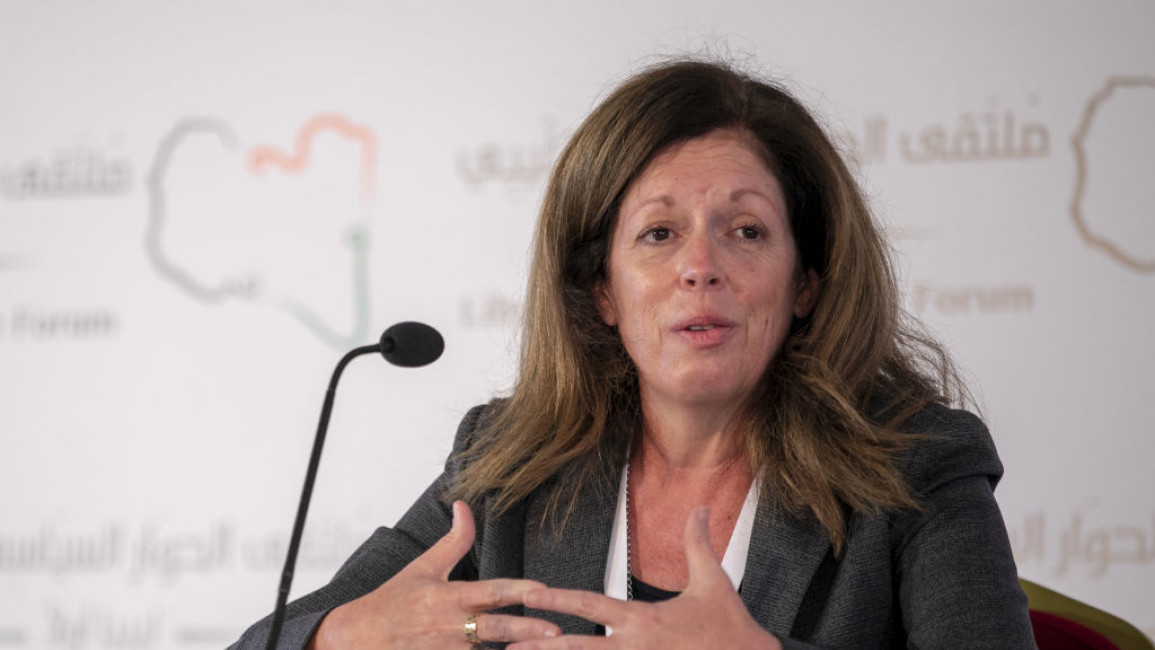Libya's dissident Tobruk parliament to participate in renewed election talks in Egypt
A dissident Libyan parliament that does not recognise the country's internationally-backed authorities will participate in renewed talks seeking to pave the way for delayed elections, the Libya adviser to the head of the United Nations said Friday.
Stephanie Turco Williams, Libya special adviser to UN Secretary-General Antonio Guterres, announced that the House of Representatives, which sits in the eastern city of Tobruk, would be taking part in the talks after she met with First Deputy Faouzi El-Nuweiri the day before.
The second round of discussions between members of the joint committee of the House of Representatives and High Council of State advisory assembly will convene on 15 May in the Egyptian capital of Cairo, Williams said on Twitter.
The aim of the talks is to "agree the necessary constitutional arrangements for taking Libya to national elections as soon as possible", she said.
They follow a first round of Cairo discussions that ended after six days on 18 April.
3/3 He also confirmed the HoR’s commitment to taking part in the second round of meetings of the Joint HoR/HCS Committee in Cairo on 15 May, with the aim of agreeing the necessary constitutional arrangements for taking Libya to national elections as soon as possible.
— Stephanie Turco Williams (@SASGonLibya) May 6, 2022
Libya's long-anticipated presidential elections were supposed to go ahead in December, but a failure to reach consensus on key electoral issues prevented this from happening.
Internationally backed premier Abdulhamid Dbeibah of the Tripoli-based Government of National Unity has said presidential and parliamentary elections will proceed in June.
But, as before, these are likely to collapse without a comprehensive agreement across Libya's political divide.
Libya's House of Representatives selected Fathi Bashagha, an ex-interior minister, to replace Dbeibah in February after December's vote did not materialise.
Dbeibah has remained in office, rejecting the House's decision.
The High Council of State was created in 2016 to advise both the House of Representatives and the internationally-recognised government.
It came as part of an effort overseen by the UN to bring Libya's rival political factions together and move on from years of civil war that followed the toppling of long-time dictator Muammar Gaddafi in 2011.



